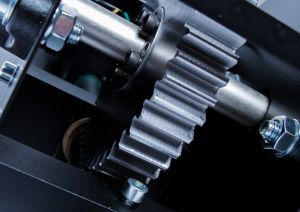CE Marking of Machinery
The Machinery Directive (2006/42/EC) is intended to harmonise the rules governing the sale of machinery within the EU, while guaranteeing the highest possible level of safety for consumers and workers. It entered into force on 29 December 2009.

The Directive covers machinery, interchangeable equipment, safety components, lifting accessories, chains, ropes and webbing for lifting purposes and removable mechanical transmission devices. It also includes requirements for partly completed machinery. Annex I of the Directive sets out in detail the essential health and safety requirements for the products covered.
An amendment to the Directive was agreed in 2009 introducing new requirements for machinery for pesticide application, which must be designed and manufactured in such a way as to minimise the unintended dispersal of pesticides in the environment. This amendment becomes applicable on 15 December 2011.
For machinery that does not fall under one of the 23 categories listed in Annex IV of the Directive, the manufacturer himself (or his authorised representative in the EU) carries out internal checks on the manufacture of the machinery. If a product falls under one of those 23 categories, the manufacturer has the option of carrying out internal checks on the product only if he has applied in full harmonised European standards covering all of the relevant health and safety requirements.
If this is not the case, then the conformity of the product must be assessed through either the EC-type examination (plus internal checks) or the full quality assurance procedure. These procedures require the involvement of Notified Bodies and are explained in Annexes IX and X of the Directive.
Once the conformity assessment is complete, the manufacturer must affix the CE marking to the product – ‘visibly, legibly and indelibly’ in accordance with the specific instructions set out in Annex III of the Directive. The manufacturer must also draw up the EC Declaration of Conformity and ensure that it accompanies the machinery.
(source: European Commission, Directorate-General for Enterprise and Industry, CE marking for the machinery industry, European Commission, 2014, https://data.europa.eu/doi/10.2769/72419)
Not just Machinery Directive...
In general, CE Marking of Machinery does not mean to apply Machinery Directive.
In fact, many situation can arises, where more Directives have to be applied, and there are also exceptions where Machinery Directive has not to be applied for the CE Marking of machinery. Also for this reason, the best option for a manufacturer is to ask the support of a CE Marking expert, who can also help you to:
- identify and apply harmonised standards, if applicable
- evaluate the necessity or usefulness of laboratory test and choose the best laboratory for your specific case
- prepare the Technical File for CE Marking, including also: Risk Analysis, Product Manuals, Declaration of Conformity, Identification Labels, etc.
Do you need help for CE Marking?
How we help manufacturers, distributors and importers:
We offer consulting on CE marking to manufacturers, distributors and importers. This also includes:
- identification of the obligations for your specific products
- technical support in preparing the necessary documentation
- consultancy for the identification and implementation of safety measures (e.g.: selection of safe materials and components, design changes for safety, addition of protections, photocells and interlocks, safety operating procedures, personal protection equipment, affixing written warnings and pictograms, etc.).
How we help customers:
In addition to indirectly helping consumers by offering advice to manufacturers to market safe products, we provide support to consumers by providing them with information about the meaning of the CE marking and useful advice on how to choose compliant and therefore safer products.